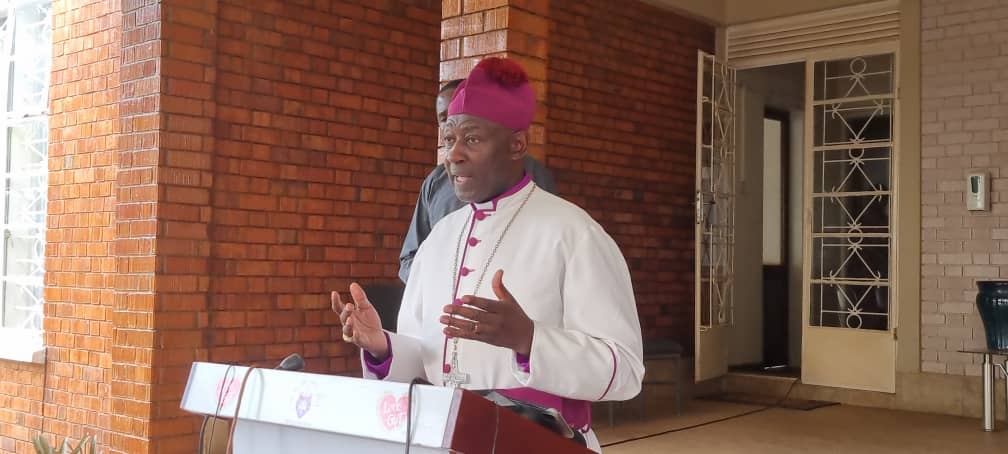The Archbishop of the Church of Uganda, The Most Rev. Dr. Stephen Samuel Kaziimba Mugalu, has issued a scathing rebuke of widespread corruption in public and private institutions, calling it a spiritual crisis that is crippling the nation’s progress.
Delivering his Easter 2025 message under the theme “Jesus’ Resurrection, Our Hope for Eternity”, Archbishop Kaziimba said corruption is not merely a governance issue, but a “deeply spiritual and moral matter,” reflecting hearts that have turned away from God and the love of neighbour.
“The media has been filled with reports of some members of public institutions getting huge sums of money for no clear reason,” the Archbishop noted, lamenting that such abuse of resources continues while “hospitals are dilapidated, schools underfunded, and roads remain in poor condition.”
He urged Ugandans to embrace Easter as a season of repentance and moral renewal, adding that the fight against corruption must begin at the level of individual conscience. “We must develop empathy for others… and uphold integrity, justice, and accountability for the good of all Ugandans,” he said.
In his wide-ranging message, Archbishop Kaziimba also called for national unity in supporting thousands of Congolese refugees who have fled into Uganda, and praised local dioceses for championing environmental protection under the newly launched “Environment Month.”
The Archbishop also addressed the substance abuse crisis, particularly among young people, linking it to the rising rates of crime and societal instability. He pledged that the Church would intensify its outreach efforts through schools, health institutions, and community churches to combat addiction and support rehabilitation.
“We are witnessing a generation losing its way to drugs and alcohol. The Church cannot remain silent,” he stated.
Turning to health, Kaziimba applauded the government for introducing the malaria vaccine into Uganda’s national immunization program, calling it a “significant step” toward a malaria-free country. He urged parents to take children for all routine vaccinations and backed the KIDO Health Insurance Scheme, which the Church is rolling out with support from the Uganda Protestant Medical Bureau.
“Health emergencies continue to drive families into poverty. We need both Church and State-led systems that make healthcare affordable, equitable, and sustainable,” he said, renewing his appeal to the government to implement a national health insurance scheme without delay.
The Archbishop also criticized the state of Uganda’s healthcare system, highlighting operational and ethical challenges faced by Church-run facilities, including land grabbing, staff shortages, and political interference.
Calling on the Boards of Directors in the Church’s health facilities to play a more active role in governance and oversight, he said, “We must turn these challenges into opportunities for better service delivery.”
Archbishop Kaziimba also highlighted the launch of the Church of Uganda Strategic Planning Framework 2026–2030, which he said is rooted in lessons from the previous plan and is aimed at aligning diocesan and provincial initiatives with emerging global realities.
“This framework offers direction for dioceses and affiliated institutions to tailor five-year strategic plans for more resilient and impactful ministry,” he said, thanking all partners who contributed to its development.
He concluded by sending Easter greetings to President Museveni and First Lady Janet Museveni, MPs, the Judiciary, and all Christians, urging Ugandans to become torchbearers of moral clarity and resurrection hope.




